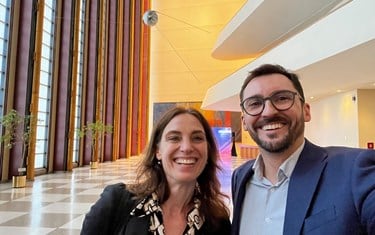
Olafiyin Taiwo is the Chair of the Young Planners Network, Commonwealth Association of Planners and a member of the RTPI General Assembly and International Committee.
Whether intentionally or unintentionally, urban spaces serve the needs of particular gender and roles without providing for the majority of society. Previously, limited understanding of the interrelationships between gender, socio-economic inequities and violence, and the built environment have further exacerbated the inequalities and challenges experienced by women, children, older people and persons with disabilities in fulfilling daily tasks and responsibilities.
However, developments in urban planning and design theory and practice continue to prove the gender disparity in urban spaces. That is from poor street design and lighting systems to inadequate and poorly designed infrastructure that increases the health and gender-based violence risks, from poorly designed public realm and services to limited mobility that adversely impacts on access to economic opportunities. These daily challenging experiences are not encountered in isolation, they are interconnected and multidimensional in nature.
Answering the most critical and yet fundamental question of how to create sustainable and resilient cities that work well for everyone remains a struggle in practical terms due to the complexities involved in identifying and incorporating all needs into legislation, policies, and frameworks at all governmental levels. Therefore, urban planning plays a crucial role in providing solutions to this multifaceted challenge. In this era with a plethora of approaches, methodologies, and ideologies for addressing different challenges, there is no standard approach for all cultures, spatial/territorial terrains, and climates, urban planning offers a set of tested approaches, guidelines, and tools to address these challenges holistically.
However, urban planning can only deliver when supported by the adoption of gender mainstreaming in public policy which translates into the creation of legislations, rules and regulations that meet the needs of all citizens and benefits all gender and characteristics equally. While some cities have made progress in addressing gender biases in urban spaces over the last three decades, the progress is not comparable to the amount of valuable research and guidance available and the huge work that remains undone.
Cities like Vienna and Barcelona have continued to champion inclusive gender friendly public policy frameworks which have positively impacted on the urban planning processes. Most recently, the city of Glasgow is been leading the way in the United Kingdom and the Commonwealth at large.
The question is, “What is hindering the planning and designing of gender friendly urban spaces that provide for the needs of women without compromising the needs of other gender and vulnerable group?”
Perhaps the misconception among built environment professionals and even the public that gender issues refer to ‘women only challenges’ has limited the advocacy for and adoption of this inclusive integrated approach to urban planning. Also, limited national government legal and policy mandates to mainstream gender within the planning system. Systematic conversations, progressive advocacy, and campaign on gender mainstreaming benefits across all levels and platforms might lead to political transformation and positive changes.
Secondly, the rising cost of investing in gender friendly safe, and secure infrastructure particularly the transport infrastructure. In order to achieve results, there is a need to identify that a feminist city is not about “fancy extras” but a necessity that requires fundamental resources – time, expertise, and capital. Furthermore, research has proven that the cost of making building accessible is less than 1 percent of the construction cost whilst the UN Women report in 2016 stated that violence against women alone costs about 1.5 trillion USD annually.
The social and economic costs of the lack of gender friendly cities are also enormous. If more cities become more gender-inclusive, with the public spaces and infrastructure more accessible, connected, safe and secure, then women and other vulnerable groups contribution to economic development will increase significantly.
Although there is an increasingly good representation of women in the built environment professions across all levels, there is a need for more representation. In addition to this, building the capacity of women and other vulnerable groups so that they are able to participate more effectively in the planning decision-making processes is required.
In conclusion, integrating the diverse needs and experiences of women and men as well as all age groups into the urban planning process is a major phase in achieving a safe, healthy, and secure environment for all. This would require both incremental and radical changes and the input of all disciplines and sectors.
The RTPI is marking Women's History Month throughout March, recognising Glasgow's journey to becoming the UK’s first feminist city. To learn more about feminist cities, join our The feminist city and gender equality webinar on 21 March 2023 at 04:00 PM - 05:00 PM.


